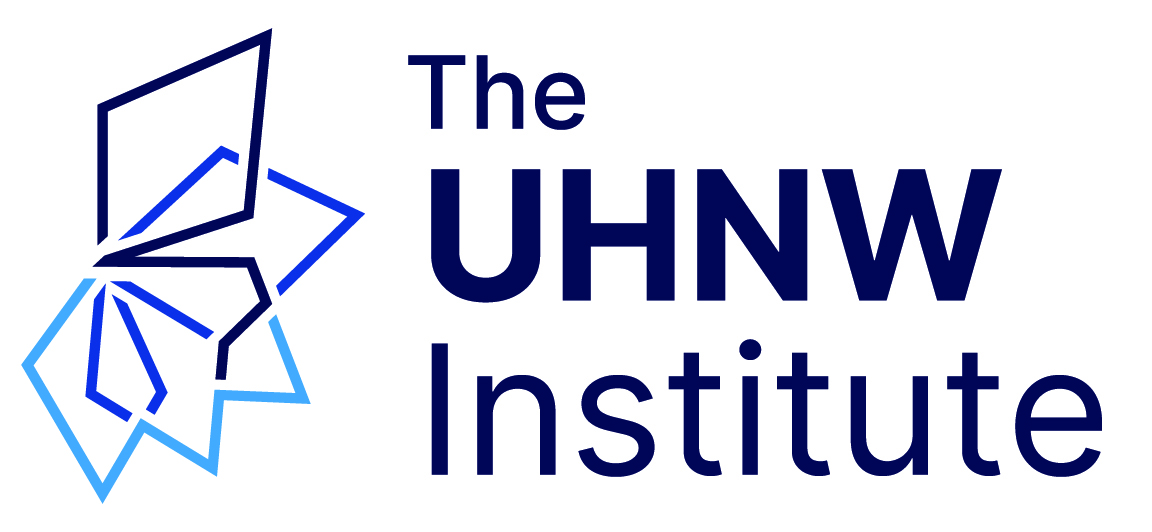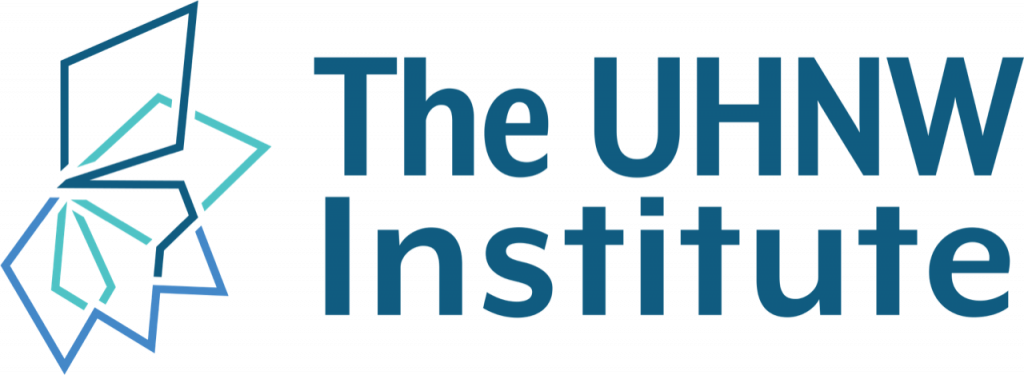
The UHNWI Institute MAY 2025 MONTHLY THEME – WEALTH + WELLNESS: NAVIGATING HEALTH & WELL-BEING IN THE LIVES OF UHNW FAMILIES
Dear UHNW Institute Members,
We are grateful to those in attendance of the UHNW Institute’s inaugural Women’s Summit: Preparing the UHNW Industry for the Female Decision-Maker and the Wealth Shift of the Century in Palm Beach last week. The event exceeded expectations with a successful launch that included more than 50 female advisors and family members, offering an opportunity to discuss the implications and hurdles associated with the impending ‘wealth shift of the century.’ We exchanged ideas, shared experiences and built connections that will support our professional growth and leadership.
One of our best attended break-out sessions of the Summit, The Great Balancing Act: The Sandwich Generation and the Roles We Play explored finding equilibrium as we help our teens launch, care for our aging parents, reach the pinnacle of our career and nurture our own relationships and well-being.
The topic of well-being is top of mind this month, as we invite members to tune in to the UHNW Institute’s podcast: The Complexities of Elder Care within UHNW Families with Teresa Leigh. Plus, join us for our May Roundtable May 22 at 4 pm ET, entitled: Is There a Doctor in the Firm? The Changing Role of Wealth Advisors in Addressing Client Health Concerns.
When health becomes part of the conversation, wealth advisors often find themselves in uncharted territory. Yet for many UHNW families, physical, mental or behavioral health issues deeply affect how financial decisions are made, and the role of the advisor naturally expands.
Designed for advisors who want to be more prepared and remain trusted, effective partners when health issues arise, the May Roundtable will explore how wealth advisors can thoughtfully approach client health concerns, initiate productive discussions and connect clients with appropriate support. We will also review private healthcare solutions tailored to the UHNW segment and outline how advisors can maintain professional boundaries while still providing meaningful guidance.
Wealth + Wellness: Navigating Health & Well-Being
This month, our theme encompasses the vital intersection of health, well-being and wealth management. As longevity planning, mental wellness and healthcare access become central to high-net-worth families’ concerns, advisors are uniquely positioned to support clients beyond financial stewardship. As we know from our Ten Domains of Family Wealth (TDoFW), the modern wealth advisor is evolving into a more holistic role— one acutely aware of the complexity of family dynamics, personal well-being and intergenerational health dynamics.
Well-being refers to a holistic state of health, happiness and prosperity, encompassing multiple dimensions of a person’s life, not just the absence of illness, but the presence of positive conditions that allow individuals to thrive. These may include physical, emotional, mental, social, financial, spiritual, environment and purpose-based well-being. The latter ‘purpose-based well-being’ refers to activities or work that align with personal values, which is often the best place to begin with a client.
As trusted stewards of not only financial assets, but also family stability, we will increasingly be called upon to recognize and address clients’ health-related stressors that impact both personal and financial decision-making, including challenges like: longevity planning & chronic illness preparedness; mental health & family system stress; privacy in healthcare access; health inequality within the family and stress; and burnout & purpose fatigue, among other issues.
Advisor Guidance: Navigating Health Conversations with Care
While not all wealth advisors may be therapists or physicians — we can serve as powerful bridges recognizing when health concerns are influencing financial behavior or planning timelines, and connecting clients to trusted experts. A warm handoff or a structured family meeting that includes wellness themes can honor the advisor-client relationship while preserving professional integrity.
- Thoughtful Approaches to Health-Related Dialogue
– Use annual review meetings to ask open-ended lifestyle questions.
– Normalize health planning as part of risk management and legacy structuring.
– Frame discussions around “family continuity” and “multi-generational readiness.”
- Initiating Productive Discussions Without Overstepping
– Ask about healthcare proxies, mental health clauses in trusts and wellness goals.
– Include “human topics” in family meetings in coordination with facilitators or family governance specialists.
– Acknowledge personal boundaries while signaling access to resources.
- Connecting Clients to the Right Support
– Build a vetted referral network of concierge physicians, health advocates, family therapists and private care consultants.
– Collaborate with family offices, attorneys and trustees to ensure health planning is embedded across legal and financial strategies.
– Leverage philanthropic goals to support mental health causes or family wellness foundations.
As advisors, we will be called upon to wear many hats. As the families we serve undergo the ‘wealth shift of the century,’ knowing how to support their various needs will make the difference between the wealth advisor of the wealth creator, versus the trusted advisor of the multigenerational family.
And finally, speaking of the various hats we wear, Happy Mother’s Day to those celebrating one of the greatest roles we can play.
Be sure to explore the following UHNW Institute Resource Library resources to support this month’s Wealth + Wellness theme.
—
ARTICLES/BOOKS/PRESENTATIONS
Tips for Dealing with and Drafting for Clients with Diminished Capacity
Kim Kamin, Tara Anne Pleat, American College of Trusts and Estate Counsel (ACTEC)
Two experienced estate attorneys share best practices for effectively addressing diminished capacity. Anticipating mental incapacity and proactively drafting legal materials can ensure the client’s decisions and wishes are honored.
Ashley Fife, Michael Giraud, Society of Trust and Estate Practitioners, 2024
A significant and increasing percentage of the aging population worldwide have conditions that can lead to mental incapacity and risk exposing them to undue influence. This STEP-based article provides guidance for trustees in navigating mental incapacity issues in beneficiaries, trust settlers and family enterprise leaders. Trustees can take steps to proactively address incapacity issues before these lead to litigation and other negative outcomes. The article also lists several useful questions for trustees to consider before accepting a trusteeship. A particular benefit of this article is its global perspective; international legal cases offer real-life examples of the concepts shared.
Coventry Edwards-Pitt, BP Books, 2017
A book for advisors and family members filled with stories of thriving elders, who share their perspectives on how they found purpose, meaning and health in their later years.
—
PODCASTS
The UHNW Institute Podcast- The Health & Well Being Domain
Tips for Dealing with and Drafting for Clients with Diminished Capacity
Kim Kamin, Tara Anne Pleat; American College of Trusts and Estate Counsel (ACTEC), 2024
Two experienced estate attorneys share best practices for effectively addressing diminished capacity. Anticipating mental incapacity and proactively drafting legal materials can ensure the client’s decisions and wishes are honored.
Intent Clinical’s Podcast (formerly, Beyond the Balance Sheet)
—
VIDEO
Webinar- Jim Grubman interview with Dr. Pasha – Effective Integration – Lessons from the Mayo Clinic
Amirala Pasha, James Grubman, UHNW Institute, 2024
Dr. Jim Grubman from the UHNW Institute and Dr. Amirala Pasha from the Mayo Clinic discuss the Mayo Clinic’s renowned integration model and how aspects might illuminate the family wealth advising industry. Dr. Pasha is an Internal Medicine Physician and the Practice Chair of the Mayo Clinic’s Executive Health Program. The discussion explores the Mayo Clinic’s interdisciplinary collaboration and integration efforts among practitioners, both inside and outside the Clinic. The Mayo Clinic’s integrated culture keeps the needs of the patient central to all decisions and activities.
Handling Dementia and Incapacity in Wealth Advising (webinar replay)
UHNW Institute, 2023
As clients continue to live longer, many will experience diminished capacity. Trusted advisors are frequently the first call that a distressed client makes. In this roundtable replay, clinical, medical, financial and legal experts discuss how to recognize signs and progression of dementia in clients, the role an advisor can play in bringing up a questions of capacity, resources to address the needs of aging adults and tips to handle common crises that occur in family systems with dementia.

